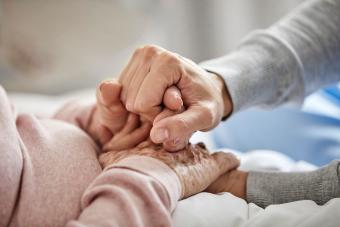
The definition of geriatric care has changed significantly through the years. Many factors have influenced what this type of care entails and even what it means to age in our current society. Even though many well-respected medical institutions still have departments of geriatric medicine, even the term "geriatric" has been questioned.
Changes in our way of thinking began as the baby boomer generation began to get older. Now, many baby boomers are caring for elderly parents while they contend with their own slew of doctors appointments, illnesses, and changes in mobility. And the definition of geriatric care has continued to evolve as Gen Xers enter middle age and beyond. These populations have influenced an entirely different way of viewing and managing aging and health.
What Is Geriatric Care?
Traditionally speaking, geriatric care has been defined as the medical care of people 65 years and older. The scope of this care has changed to include not just medical needs, but also the psychological and social needs of people in this age category. More than ever before, geriatric care encompasses a holistic approach to coping with aging and its effects.
Some factors remain unchanged. The body ages with time and use. Body systems may begin to show their genetics predispositions and other signs of aging. Those over 65 will experience signs of aging such as loss of muscle mass and wrinkling. Try as you may to hold off these changes, your body still feels the effects of time. But more experts believe that people can modify their mental approach and somewhat control what happens when the physical aspects of aging manifest themselves.
Think about it. While society still associates wisdom with age, it also associates older adults with the Red Hat Society and other positive ways of viewing this stage of life. Aging is inevitable. What you can change is your attitude about what aging means to you.
How Geriatric Care Is Changing
Much of the impetus behind the evolution of the geriatric care definition can be traced to society's view of aging. Getting older is no longer viewed as negatively as it once was.
Changes in Language
Acceptable terms used to define older adults have changed in recent years. While words like "elderly" and "geriatric" were once commonly used to describe adults over age 65, these terms are now being questioned. A study conducted by a private insurance company found that many of the terms traditionally used are now considered offensive. In fact, the study even showed that 1 in 5 older adults was offended by the term "senior."
Despite these changes, however, many medical schools and highly-regarding academic institutions like Johns Hopkins, Harvard, and St. Louis University still use the term "geriatric" to identify the field of medicine involving the care of aging adults. And it is still fairly common to hear the terms "geriatric medicine" and "gerontology" in clinical settings.
Changes in Attitudes
Senior adults are staying on the job longer. Some of the stigma of hiring older adults has abated as employers have begun to realize that older employees are reliable and have a good work ethic.
The idea of retiring and then going to live with relatives is also not as prevalent today as it was years ago, simply because seniors are not viewing age as a barrier to activity and recreation. With greater knowledge and opportunities, older adults have the ability to plan well in advance for retirement and future medical care needs.
The fact remains that the word "geriatric" does not mean the same thing as it did decades ago. It has evolved as people have found ways to view retirement as an opportunity.
How Medical Geriatric Care Has Changed
It used to be that when you "got old", the only thing waiting for you was the nursing home. The stereotypical associations were anything but pleasant. Today, you can choose assisted living or you can employ a caregiver to help you with tasks that you may find difficult. The point is that as an aging adult, you have more options.

At one time, a geriatric care definition might be associated with depressing subjects, such as dealing with the inevitable failing of mental and physical health. That no longer needs to be the case. Mental well-being is just as important as the physical aspects. The mind is enormously powerful, more so than you may realize. As Marilyn Ferguson in "The Aquarian Conspiracy" said, "Of all the self-fulfilling prophecies in our culture, the assumption that aging means decline and poor health is probably the deadliest."
The Move Towards Senior Self Care
Today's older adults are more educated than ever before about things such as alternative medicine, senior rights and health care. Many companies offer their services to find ways to keep you at home as long as possible, such as having groceries and medications delivered directly to your door.
You have more opportunities to learn about options for medical care and assistance if necessary. Also, members of your family have access to more resources to help you make good choices for your care.
With increased knowledge comes a realization that aging does not mean becoming sedentary. What society considers old has also changed. Older adults now feel more empowered than ever to manage their own aging process and self care.
So where does this leave you? Do you want to travel the country or the world? Do it. How about getting that college degree that family and obligations prevented you from pursuing? Go for it. Think that you cannot walk the Appalachian Trail because you are pushing 75? Think again. If you are in good health and active, you can pursue your goals.
The challenge for you as you age is to make your own assessment of your health and medical needs. Certainly, you have the information and tools to maintain your good health. All it takes is embracing the here and now and choosing to take charge of your life.







